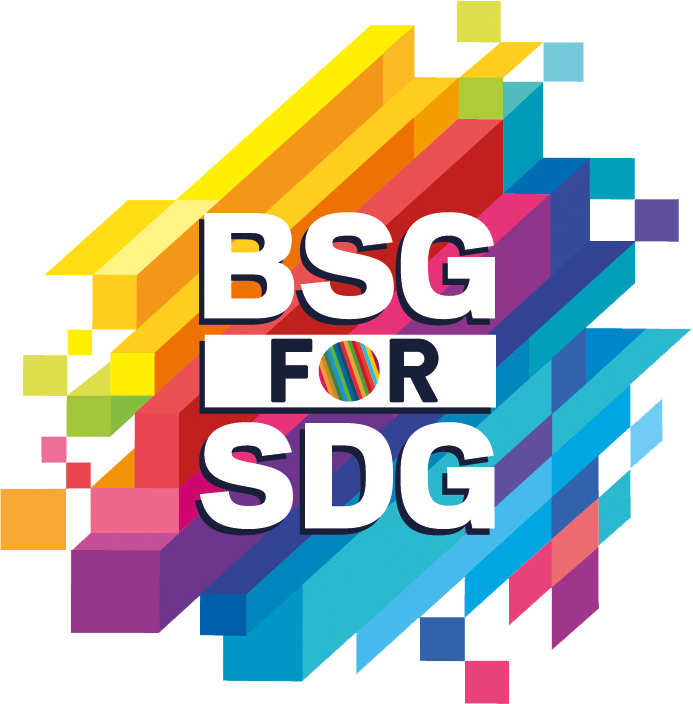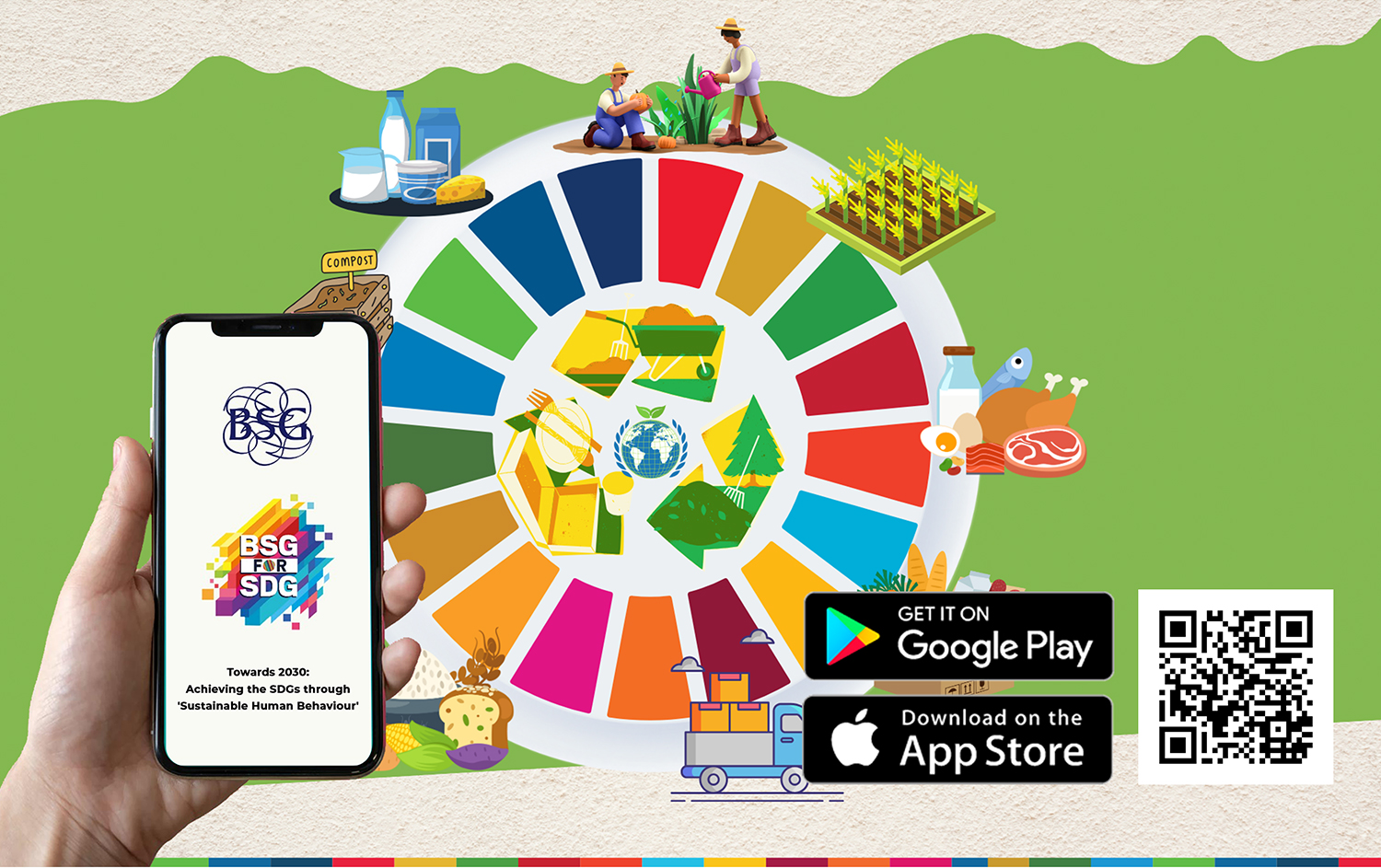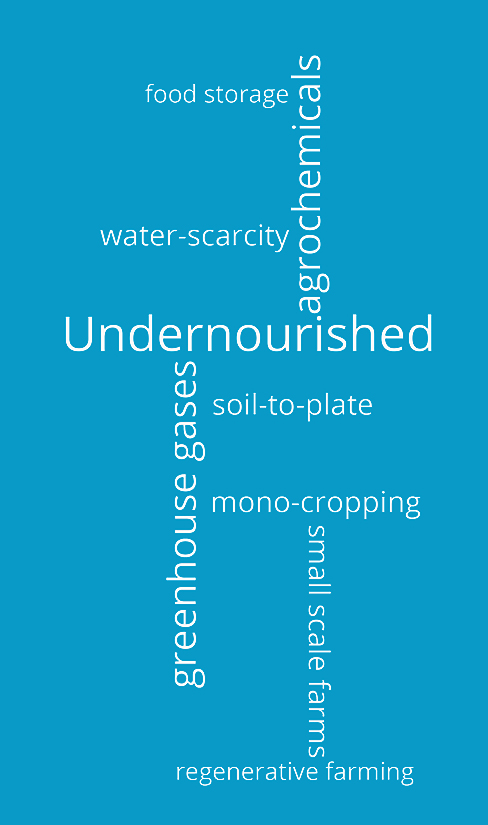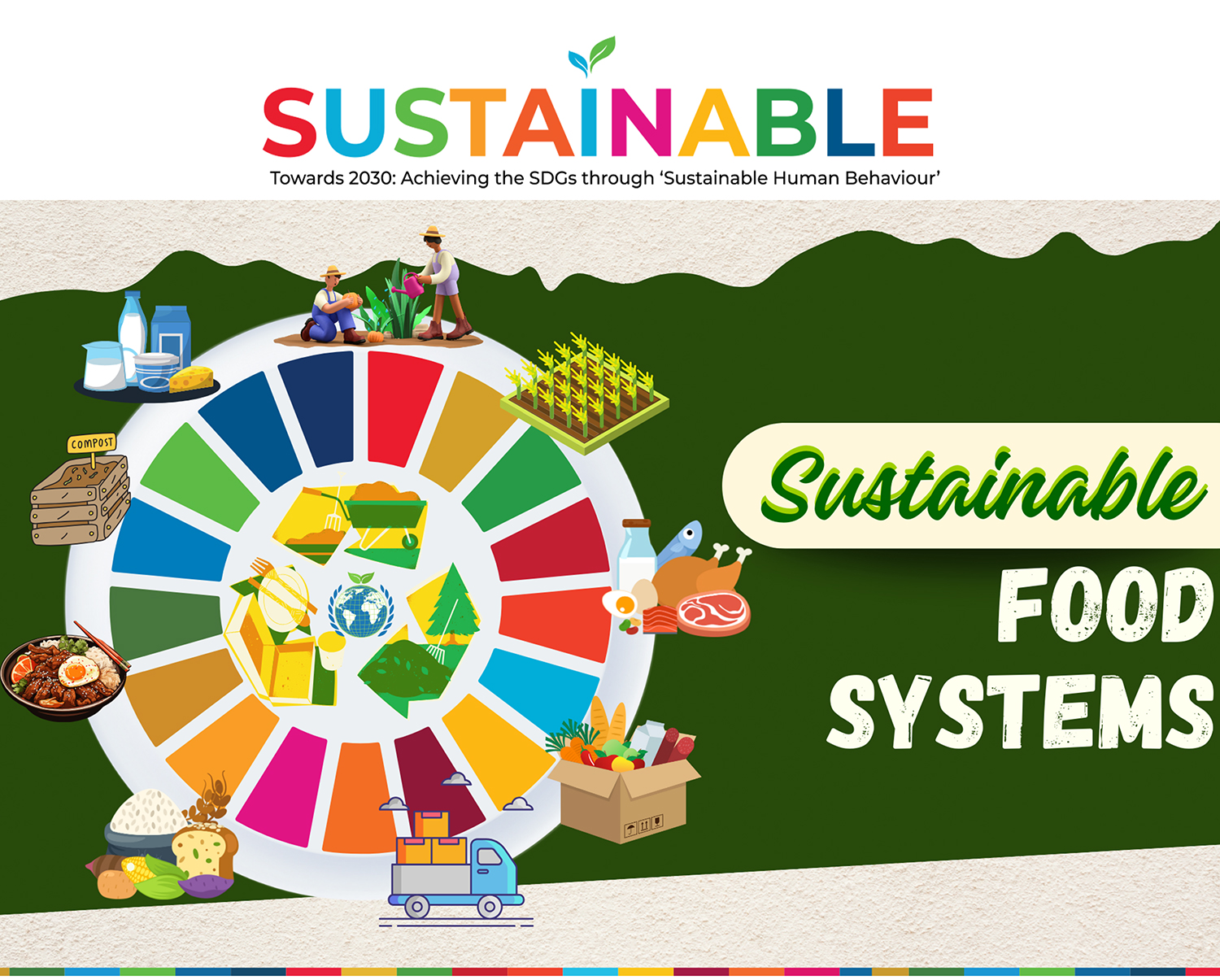
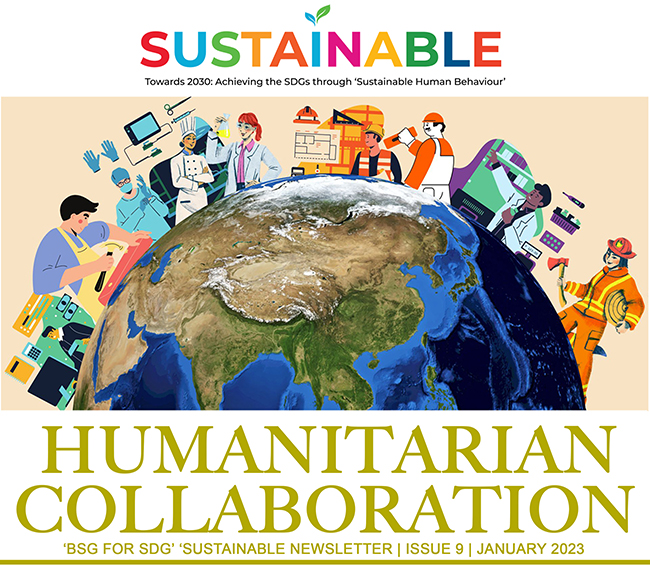
Greetings from BSG Chairperson Mr. Vishesh Gupta
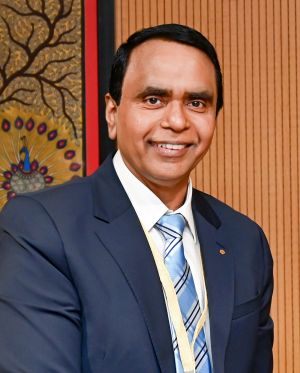
Dear readers,
I extend my warmest regards to each of our esteemed readers and partners as we embark on another enriching journey through the pages of our ‘SUSTAINABLE’ newsletter. As we gather here to explore the theme of ‘Sustainable Food Systems’, I am reminded of the profound interconnectedness that binds us all in our shared pursuit of a better, more sustainable world.
In today’s ever-evolving landscape, the importance of sustainable food systems cannot be overstated. From addressing food security challenges to mitigating the impacts of climate change, our collective efforts in this arena hold the key to unlocking a future of abundance and resilience for generations to come. It is heartening to witness the dedication and ingenuity displayed by individuals and organisations alike as we navigate the complexities of this vital issue.
As we delve into the insightful articles and reflections contained within these pages, let us be mindful of the power inherent in our choices and actions. Each decision we make, whether big or small, has the potential to shape the trajectory of our food systems and the well-being of communities around the globe. By embracing the principles of sustainability and fostering collaboration across sectors, we can pave the way for transformative change on a global scale.
I am particularly inspired by the stories of empowerment and resilience shared within this newsletter, highlighting the pivotal role that individuals play in driving progress towards the Sustainable Development Goals. From trailblazing new initiatives to build sustainable food systems to championing regenerative agricultural practices, these narratives serve as powerful reminders of the impact that one person can have on the world around them.
In closing, I extend my heartfelt gratitude to all those who have contributed to this publication and reaffirm Bharat Soka Gakkai’s unwavering commitment to the ‘BSG for SDG’ initiative. Together, let us continue to strive towards a future where sustainability, equity, and prosperity are the hallmarks of our society.
Warm Regards
Vishesh Gupta
Chairperson, Bharat Soka Gakkai
One of the daunting challenges facing the world today is – how to feed 8.1 billion people with adequate, nutritious food that is good for the people and planet?
The compound effect of global wars, climate crisis, weakened global economy, and the lingering effects of the COVID-19 pandemic have hindered progress towards the United Nations Sustainable Development Goals. Rising food, fertiliser and energy prices have pushed the world’s poorest and most vulnerable people to the brink of desperation. Global hunger and poverty is on the rise despite an increasing trend in global cereal production (FAO, 2023) as well as fruits and vegetables production (FAO, 2022). In contrast, the global rate of undernourishment stood at 9.2 percent in 2022, an increase of 1.7 percent since 2017, reaching about 735 million people (GHI, 2023). In 2021-22, despite a robust food grain production of 315.7 million tonnes (MoF, 2023), 16.6 per cent people in India remain undernourished during the same period, revealing a massive flaw in the food storage and distribution system.
According to estimates, tons of edible food are lost and/or wasted every day. Globally, around 13 percent of food produced is lost between harvest and retail, while an estimated 17 percent of total global food production is wasted in households, in the food service and in retail all together. Moreover, food loss and wastage accounts for about 7% of global greenhouse gas (GHG) emissions (2023). (UN, 2023)
At least 40% of the Earth’s land surface is dedicated to agriculture, out of which nearly 80% is used to raise livestock. Emissions of methane and nitrous oxide, two potent greenhouse gases, largely come from nitrogen fertiliser use and the rearing of livestock. It is no surprise then that Food systems account for 29% of greenhouse gas emissions and the leading share of biodiversity loss.
Incessant use of industrial agriculture practices such as large scale mono-cropping, use of chemical fertilisers and pesticides, genetically modified seeds etc has led to decline in productivity, water scarcity, and eventual soil and land degradation which further pushes the farmers to use harmful agrochemicals and inefficient irrigation systems. As opposed to this, small-scale farms are more amenable for deploying ecological and other regenerative farming practices.
There is a gendered dimension to this as well. Despite comprising about 43 percent of the agricultural labour force globally and in developing countries, women’s labour remains largely unrecorded, under- or un- paid. Their key role and their critical contribution to household food security is only recently becoming recognised. Women farmers face a lot more difficulties than men in gaining access to resources such as land and credit and productivity enhancing inputs and services. (FAO)
Food goes through a long arduous journey from soil to our plate. However, as consumers we can play our part towards making the food system more sustainable by making smart food choices. Some of these choices include opting for a plant-based diet, choosing no-chemical produce, growing our own kitchen or balcony garden, and supporting small-scale farmers by ditching the glossy, imported varieties and instead, buying the local, indigenous and seasonal produce. Our small choices go a long way in creating a sustainable food system.
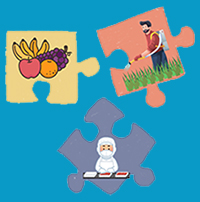
Food systems
All living beings need food to survive. It is one of our basic needs. Food is not a standalone subject. It is part of a system. Imagine a food system like a big puzzle made up of different pieces – there are farmers who grow food, people who process and distribute the food produced by the farmers, retailers who sell it to the consumers, that is us, who eat the food. There are also bigger players who make broad decisions – what kind of food must be grown to feed the people, who should produce it, at what price should it be sold etc. All these pieces come together to ensure that food is produced, distributed, and consumed in a sustainable, equitable, and healthy manner. In a nutshell, the food system includes farmers, producers, distributors, retailers, consumers, and various organisations and institutions involved in food production, management, and regulation.
A sustainable food system is crucial for achieving many of the Sustainable Development Goals such as alleviating poverty, reducing malnutrition, achieving gender equality, good health, providing decent employment opportunities for people involved in the food system, and supporting small-scale farmers. It also drives climate action through promoting sustainable agriculture practices, reducing food waste, and adopting more efficient food production and distribution systems.
As conscious consumers, we too have a role to play in making our food system more just and sustainable for everybody. Next time we go to buy food, consider these questions – where was this food grown? Is it local and seasonal? Who produced it, and what methods were used (chemical use or organic)? Will it harm my body in any way? Are the farmers getting a fair price for it? What causes its price fluctuations? Does growing this food in its current location and manner harm the climate or local economy in any way? A sustainable food system ensures healthy people, a healthy planet and prosperity for all.
 To Read
To Read
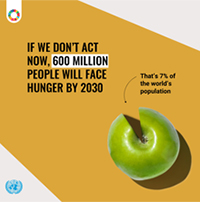
Fast Facts – What are Sustainable Food Systems?
Is it about ensuring food for all? Is it about sustainable transport and packaging of food? Is it about cultivation of food? What really is a sustainable food system? Read this UN page to find out.
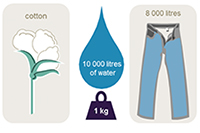
How Thirsty is Our Food?
The food we eat can have a significant water footprint. Water footprint of a food product is all the water consumed and polluted in all processing stages of its production. Learn more about the numbers of litres of water required to produce 1kg of different food products.

Conflict and Hunger
Did you know that one of the major causes of hunger and famine is conflict, with over 70% of the world’s hungry people living in areas affected by war and violence. The World Food Programme has warned that war-torn Sudan could be facing the world’s worst hunger crisis, with 18 million people acutely food insecure and 5 million facing starvation. As of February 2024, the United Nations shared that a quarter of the population in Gaza were “one step away from famine”, with children especially impacted due to malnourishment. Learn more about how conflict leads to hunger.

Food and Climate Change: Healthy diets for a healthier planet
Food has a link to both climate mitigation and adaptation. Food production, processing and transport contributes to release of greenhouse gas emissions and hence climate change. Further, climate change also threatens agriculture and hence food security. Thus, it is important to transform food systems and make them more resilient. There is a wealth of knowledge to gain from indigenous cultures on making food systems climate resilient. This article highlights lessons we can learn from Meghalaya’s food diversity.
Food has become an important agenda at global climate platforms, and for the first time at the UN Climate Summit COP28 in December 2023, countries endorsed the Declaration on Food Systems, Agriculture and Climate Action.
 To See
To See
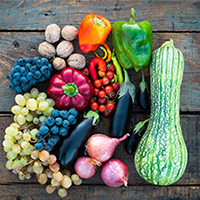
20 Must-Watch Documentaries about Sustainable Food
The food industry stands out as a major contributor to environmental degradation, with considerable harm inflicted on the planet through extensive agriculture and food processing. Nevertheless, a burgeoning group of entrepreneurs is dedicated to reshaping the food system into a more sustainable entity. These visionaries leverage technology, embrace regenerative agriculture, and adopt innovative business models to foster an ethical and environmentally conscious food industry. Whether you harbour aspirations of entrepreneurship or are simply intrigued by the future of food, these films provide valuable insights into the challenges and opportunities inherent in the sustainable food sector. Featuring diverse narratives, from small-scale farmers to pioneers combating food waste, these documentaries and docuseries share inspiring stories that are sure to leave you motivated and empowered to effect positive change.

Why Sustainable Food Systems Matter
What does it take to grow enough food for all of us? How do we create food systems that meet the needs of our changing world—and what role does technology play? At National Geographic’s Future of Food forum on May 2, 2014, leading experts gathered to discuss how we can feed a global population set to top nine billion by 2050.
 To Listen
To Listen

20 Best Sustainable Food Podcasts
Here’s a list of 20 best sustainable food podcasts from around the world. From news, to sustainable recipes, from interviews with scientists and leaders, to testimonials from civil society – explore all this and so much more through these podcasts.

The Sustainable Food Trust Podcast by Patrick Holden
The Sustainable Food Trust podcast questions current food production methods and sheds light on the future of farming. Chief Executive Patrick Holden hears from a range of voices, including policymakers, business leaders, food producers and campaigners, about some of the issues facing farming systems across the world.
 To Play
To Play
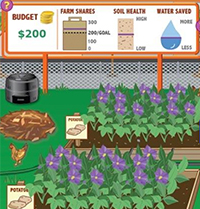
City Farm
In this interactive game developed by WGBH, players acquire knowledge about sustainable practices through cultivating crops, safeguarding them from unforeseen challenges, and strategizing optimal resource conservation.
Our food systems which are often based on an extractive mindset of reaping the highest yield of produce per unit of land come at the cost of both negative social and environmental effects.
In “The Challenge of Global Transformation—Humanity and the Environment,” a dialogue series on building a sustainable global society between German environmentalist Dr. Ernst Ulrich von Weizsäcker and Mr. Daisaku Ikeda, the founding president of the Soka Gakkai International (SGI), while discussing the global food crisis, reinforced to each other — how, like other global challenges, this too is a matter of social and ecological justice.
Zero Hunger is the second Sustainable Development Goal (SDG). However, addressing the crisis of hunger is not just a matter of the gap between demand and supply of food — the reasons why food is not available to those genuinely in need of it, needs to be unpacked. While Mr Ikeda shared the below regarding the Millenium Development Goals – the precursor to the Sustainable Development Goals (SDGs), these words are also still applicable to the SDGs, highlighting the social justice aspect:
“I have repeatedly emphasised that the effort to achieve the MDGs must not become preoccupied merely with meeting their cited objectives; instead, we should not forget that the highest priority should be assigned on restoring the well-being of suffering individuals. If we fixate solely on macro goals in the form of numerical targets and overlook the real-world plight of people, our priorities will have been fatally skewed. I have also stressed that rather than looking upon threatened populations as passive recipients of aid and development assistance, it is even more paramount to focus on their empowerment, enabling them as active protagonists to resolve their own challenges and bring their boundless potential and strengths to fullest flower.”
With regards to ecological justice, in the same dialogue series, Mr. Ikeda shared:
“…………..What we need to do now is to reexamine what the proper relationship between human beings and nature should be and what we must not neglect, either by omission or commission, in society. The Buddhist view of nature regards human beings and nature, human beings and the land, as being inseparable. As Nichiren (1222–82) writes: “The living beings and their environments are not two things, and one’s self and the land one inhabits are not two things.” In other words, all life, including human beings, exists in a relationship of mutual interdependence and support, the natural environment and living beings joined by deep and indivisible bonds. “In the same way, life is shaped by its environment,”Nichiren also writes, stressing that we human beings must never forget to have a deep spirit of gratitude for the blessings of nature and that our lives are supported by our relationships with all other living things. Our ties to nature must be based on the realisation and ensuing sense of responsibility that “[without the body, no shadow can exist, and] without life, no environment.”……….we must devote the utmost tenderness, love, and care for the environment, and by striving to protect nature and the ecosystem, lead a life in which our own humanity shines its brightest.”
Thus, in order to create sustainable food systems, we need to re-examine our role in the wider context. Instead of taking the food we eat for granted, we need to reflect on the reasons why the basic human right of safe and adequate food is not available and accessible to millions. We also need to reflect with more awareness on conventional agricultural practices that not only harm the environment, but also our own health.
Taking lead to actualize the SDGs through my own inner transformation Dr. Smruti S Mohapatra | Women’s Division | Jammu
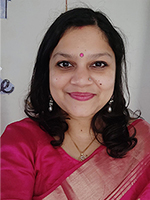
I am currently living in Jammu, and I became a voluntary member of Soka Gakkai in 2009 when I was a student in my hometown of Bhubaneswar. I felt a strong resonance with the peace proposals penned by Mr. Daisaku Ikeda – the founding President of SGI, where he talks about the urgency of grassroots action to build a peaceful and sustainable world. I am a veterinarian and an ardent supporter of animal welfare issues, agriculture policies, and global climate change.
Actualizing the SDGs has been my cherished dream, especially after I started reading Mr. Ikeda’s peace proposals. Basing myself on the guiding philosophy of Mr. Ikeda, I have taken various measures towards realising this dream over the last 15 years.
Post Doctoral studies, I worked as a Research Fellow in Institute of Rural Management Anand (IRMA). There I worked on the research projects on milk production and its management, cooperatives, indigenous people, pastoralism, and rural development. I worked on the research project of IRMA Water Centre titled ‘Water Footprint of Dairy Sector in India: An Analysis of Water Requirement, Production, Profitability and Conservation’. Our study examined the water footprint of milk production in four districts of Gujarat – Anand, Kheda, Mehsana and Banaskantha.
I was the Principal Researcher for a research project on the impact of climate change on the Maldhari pastoralists in Kutch, Gujarat. The policy brief, which was an outcome of our research project for the F.Y. 2022-23, was included in the Pastoral Knowledge Hub of the FAO (Food and Agriculture Organization), United Nations. The same was shared with all the stakeholders including the Ministry of Animal Husbandry, Dairying and Fisheries, the Government of India.
My work on the two prominent nomadic, indigenous communities in India – Maldhari of Gujarat and Bakarwal of Jammu & Kashmir have been officially recognized and included in the World Map of Pastoralists and the World Map of Camelids. This pastoralist map has information on over 900 groups of pastoralists worldwide.
Simultaneously, our project hosted ‘Rural Haat’ that empowered the Maldhari women entrepreneurs who are based in Kutch. I have travelled extensively to Jammu, Kashmir, and Gujarat to meet all the stakeholders. We have published working papers, a research paper, reports, and articles – highlighting the policy interventions to end the plight of those pastoralists in the face of climate change.
I have been invited for expert talks on climate change by various platforms. Recently I was invited as a guest speaker by 91.2 FM Dhwani Jammu University on the occasion of International Women’s Day 2024 to narrate about my journey as a researcher putting SDGs into action. I have been a part of Great Backyard Bird Count 2021 in Bhubaneswar and 2024 in Jammu. I am a vegetarian and minimalist by choice.
I am striving to take the lead in the ‘BSG for SDG’ initiative. I personally refer to the app to explore and enhance my knowledge on the SDGs, and often share my learnings with the fellow members in BSG and with my friends. As the motto of the ‘BSG for SDG’ initiative shares, we can achieve the SDGs only by focusing on our ‘Sustainable Human Behaviour’. The purpose of our life boils down to how our behaviour is towards others in the course of life. Deeply anchoring myself on these guiding principles, and solidly uniting with each other, I am determined to adopt sustainable human behaviour and channelize different ways to realise SDGs by 2030 and create an environment where no one is left behind.
 SDG Tip for Daily Life
SDG Tip for Daily Life

Perhaps one may wonder – how can we all adopt sustainable food practices in our daily life? What can we do to ensure we are eating not just ‘from’ the planet, but ‘for’ the planet? Here are 8 simple tips on how we can all make changes to our diet to help us eat healthily and sustainably, in a way which is good both for both us and for the environment.
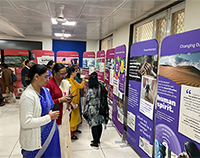
Updates
BSG Hosts The SOHA Exhibition & Forms SDG Clubs At Various Educational Institutes
The ‘Seeds of Hope & Action (SOHA): Making the SDGs a Reality’ – a sustainability focused exhibition was organised by BSG at various educational institutes, including: Shiv Nadar University, Greater Noida; Father Agnel School, Noida; Government College, Sector 46 Chandigarh; Mothers Mount Global School, Vikas Puri; Sikkim Manipal Institute of Medical Sciences, Gangtok; among others. BSG has conducted a total of 117 SOHA Exhibitions across schools and colleges till date. BSG also formed its 21st SDG Club at Post Graduate Govt. College, Sector 11, Chandigarh.
Read more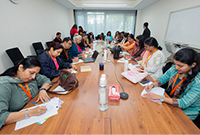
BSG Conducts A Sustainability Workshop For Over 100 Teachers And Teacher-Mentors
In February 2024, BSG conducted a sustainability workshop and teachers training program for close to 110 teachers and teacher-mentors from the Department of Education, Delhi, during which the teachers were taken through the Seeds of Hope and Action (SOHA) exhibition, p[layed a fun game to understand the interconnectedness of all 17 SDGs, and learnt about the various ‘BSG for SDG’ initiatives.
Read more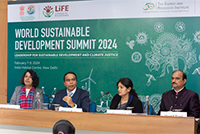
BSG Participates In The World Sustainability Development Summit Organised By TERI
On 8th February 2024, Bharat Soka Gakkai participated in the World Sustainability Development Summit organised by The Energy & Resources Institute (TERI) at the India Habitat Centre, New Delhi. BSG Chairperson Mr Vishesh Gupta spoke in a panel discussion on Environmental Education titled ‘Leading Collective Action for a Greener Future’. Other panellists included: Ms. Smita Agarwal, Head of Education, Tata Steel Foundation; Ms. Padmini G B, Loyola School, Jajpur; and Mr. Vinod Kumar Tiwari, Tata D A V School, Jamadoba.
Read more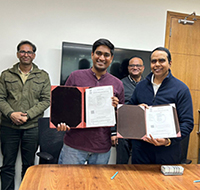
BSG & Say Earth Sign MOU
On 20th February 2024, BSG & Say Earth signed a MoU to take forward the cause of sustainability in society and make meaningful contributions for the achievement of SDGs. Say Earth is an organisation dedicated to the preservation of the environment, particularly working on transforming landfills into ponds and scenic forests.
Read more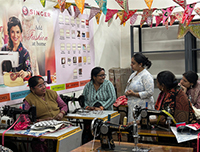
BSG Holds A Workshop On Women’s Empowerment For Underprivileged Women
On March 9, 2024, BSG volunteers organised its sixth workshop in collaboration with Pedal On for economically disadvantaged women. The workshop was a way to celebrate International Women’s Day and focus was on women’s empowerment (SDG5). Through interactive sessions and games, the women were taken through the meaning of women’s empowerment, and were explained why it is necessary for women to lead empowered lives. The learnings were directed from concepts such as ‘ME to WE’. The women were taken through key insights on how humanity and society suffer when women are not leading united and empowered lives. The session resulted in a clear understanding that women are creators of peace and happiness. All the participants as well as volunteers made strong determinations to empower many other women, and become the agents of social change towards creating a New Age in India.
Read more
BSG Conducts Youth Sports Festival 2.0
On February 11, 2024, a whopping 3,600 BSG youth members came together across five cities: Delhi, Jaipur, Pune, Bhubaneswar, and Chennai, for the second annual BSG Youth Sports Festival. Demonstrating the genuine values of sportsmanship, unity, camaraderie, joy, energy & victory, youth of BSG made a steadfast determination to carry forward this spirit, contributing to the construction of a sustainable new India and new global civilisation.
Read moreContact Us
 Any queries or suggestions regarding the newsletter can be addressed to sdg@bharatsokagakkai.org
Any queries or suggestions regarding the newsletter can be addressed to sdg@bharatsokagakkai.org
 To know more about the ‘BSG for SDG’ initiative, visit the BSG for SDG website
To know more about the ‘BSG for SDG’ initiative, visit the BSG for SDG website
 Download the ‘BSG for SDG’ mobile app with the carbon footprint calculator
Download the ‘BSG for SDG’ mobile app with the carbon footprint calculator
